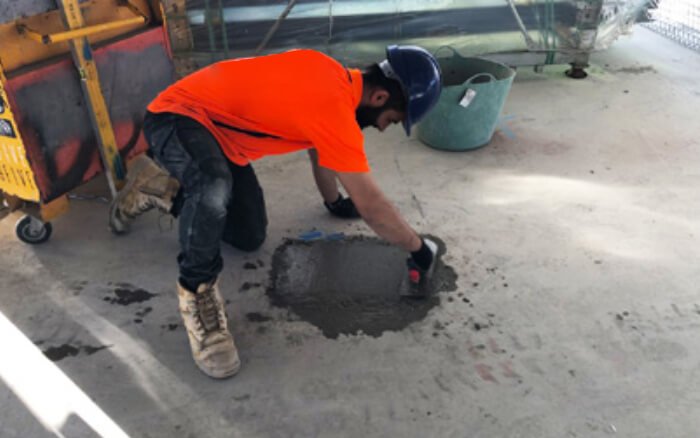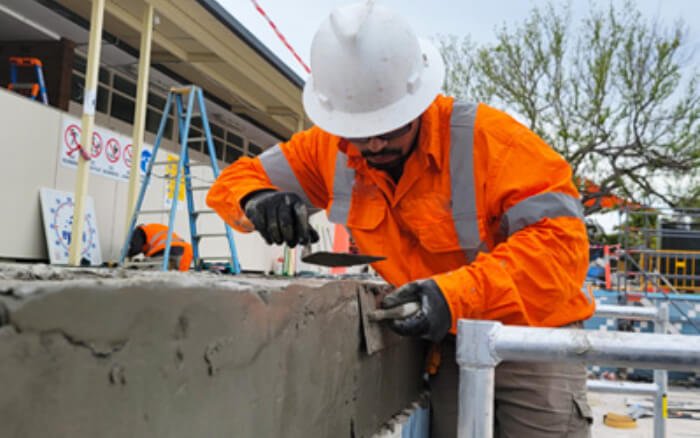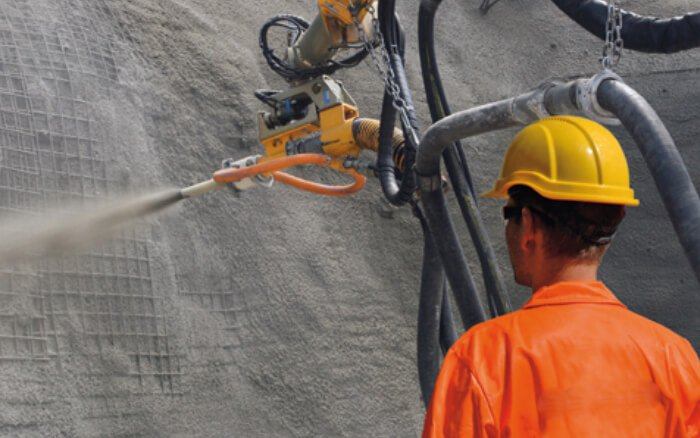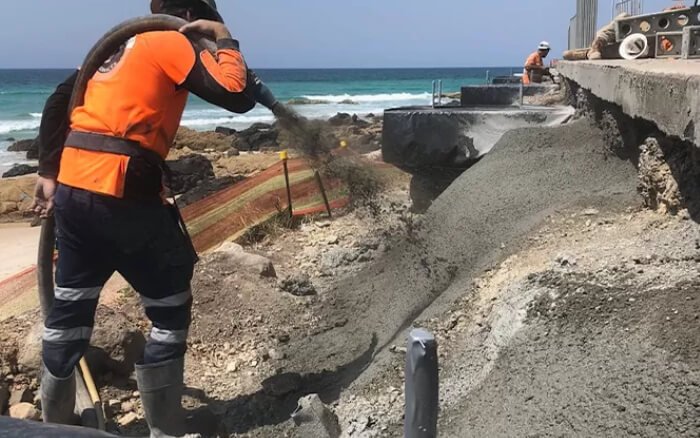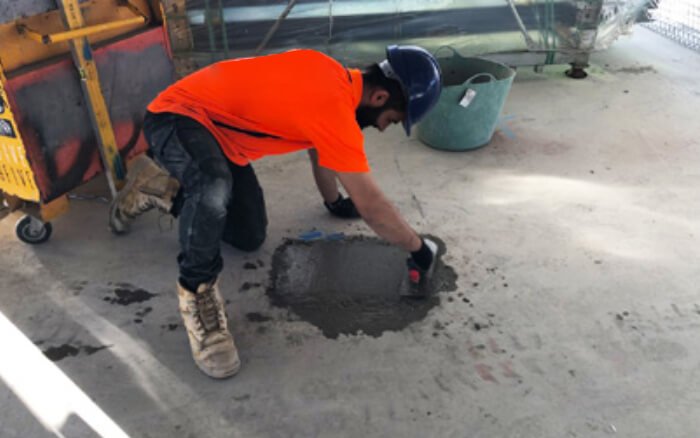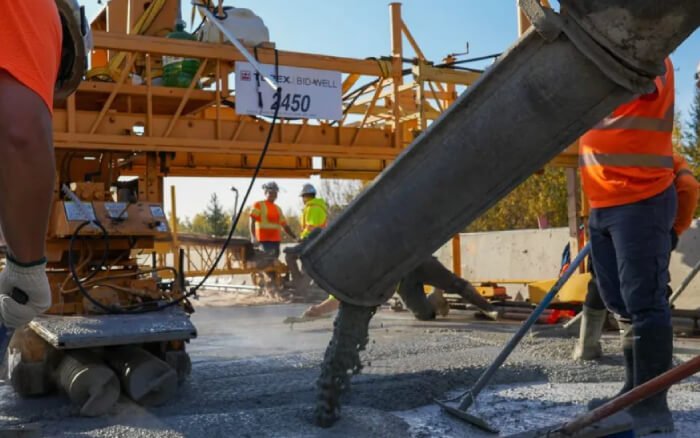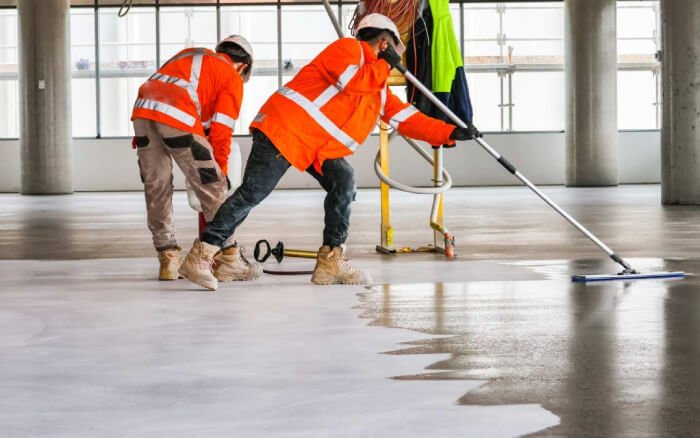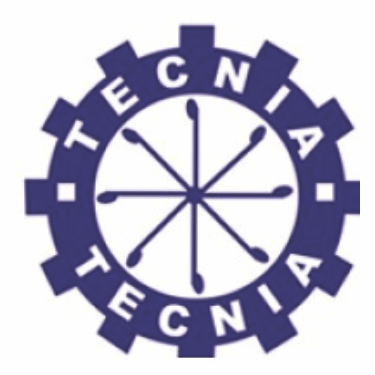What is Industrial Flooring & Screeds?
 Industrial flooring and screeds refer to the durable, high-performance flooring systems used in industrial and commercial environments. These flooring solutions are designed to withstand heavy loads, extreme conditions, and high levels of wear and tear, making them ideal for factories, warehouses, laboratories, and other industrial settings.
Industrial flooring and screeds refer to the durable, high-performance flooring systems used in industrial and commercial environments. These flooring solutions are designed to withstand heavy loads, extreme conditions, and high levels of wear and tear, making them ideal for factories, warehouses, laboratories, and other industrial settings.
Industrial screeds are thin layers of concrete or mortar applied to provide a smooth and level surface for the final floor finish. The screed serves as the foundation upon which the actual industrial floor system is built, providing both functional and aesthetic benefits.
Importance of Industrial Flooring & Screeds
Industrial floors must meet specific requirements depending on the operations within the facility. These floors must be robust, impact-resistant, and easy to maintain while providing a safe working environment. Some key factors that highlight the importance of industrial flooring and screeds include:
- Durability: Industrial floors must withstand constant foot traffic, heavy machinery, and the impact of dropped materials. They must remain intact over long periods of use without significant degradation.
- Chemical Resistance: Many industrial settings involve exposure to chemicals, oils, and solvents. Floors must resist chemical damage to maintain integrity and hygiene.
- Slip Resistance: Industrial floors must offer a slip-resistant surface to ensure worker safety, especially in areas prone to spills, moisture, or heavy machinery operation.
- Load-Bearing Capacity: Floors need to support heavy equipment, machinery, and vehicles without cracking or settling under the weight.
- Ease of Cleaning and Maintenance: Smooth and non-porous surfaces are essential for cleaning and ensuring sanitary conditions in food production, pharmaceutical, and other sensitive environments.
Types of Industrial Flooring
There are several types of industrial flooring options available, each suitable for different applications depending on the specific requirements of the space:
- Epoxy Flooring: Epoxy resin coatings are popular for industrial floors due to their durability, chemical resistance, and smooth finish. They are ideal for warehouses, factories, and chemical plants.
- Polyurethane Flooring: This flooring is known for its flexibility, UV stability, and chemical resistance, making it suitable for areas that experience extreme temperatures or heavy wear.
- Self-Leveling Floors: Self-leveling industrial floors provide a smooth, seamless surface that can be applied over existing floors, offering quick installation with minimal disruption.
- Anti-Static Floors: In environments where static discharge can cause damage to sensitive equipment or products, anti-static floors are essential for protecting electrical components.
- Concrete Polishing: Polished concrete floors are an affordable and attractive option that provides a durable and low-maintenance surface, ideal for high-traffic areas.
- Vinyl Ester Flooring: Vinyl ester flooring is used in environments where extreme chemical resistance is necessary, such as in laboratories or food processing facilities.
What are Screeds?
A screed is a layer of material (usually a mixture of sand, cement, and water) that is applied over a concrete base to create a smooth, level surface. Screeds are often used as a base for industrial floor finishes, ensuring an even and stable foundation for the final floor surface. There are two main types of screeds:
- Bonded Screeds: These screeds are applied directly onto the concrete substrate, forming a strong bond with the surface.
- Unbonded Screeds: An unbonded screed is applied over a separating layer (e.g., a plastic membrane) to prevent bonding with the underlying concrete. This is often used when the concrete base is in poor condition or when movement needs to be accommodated.
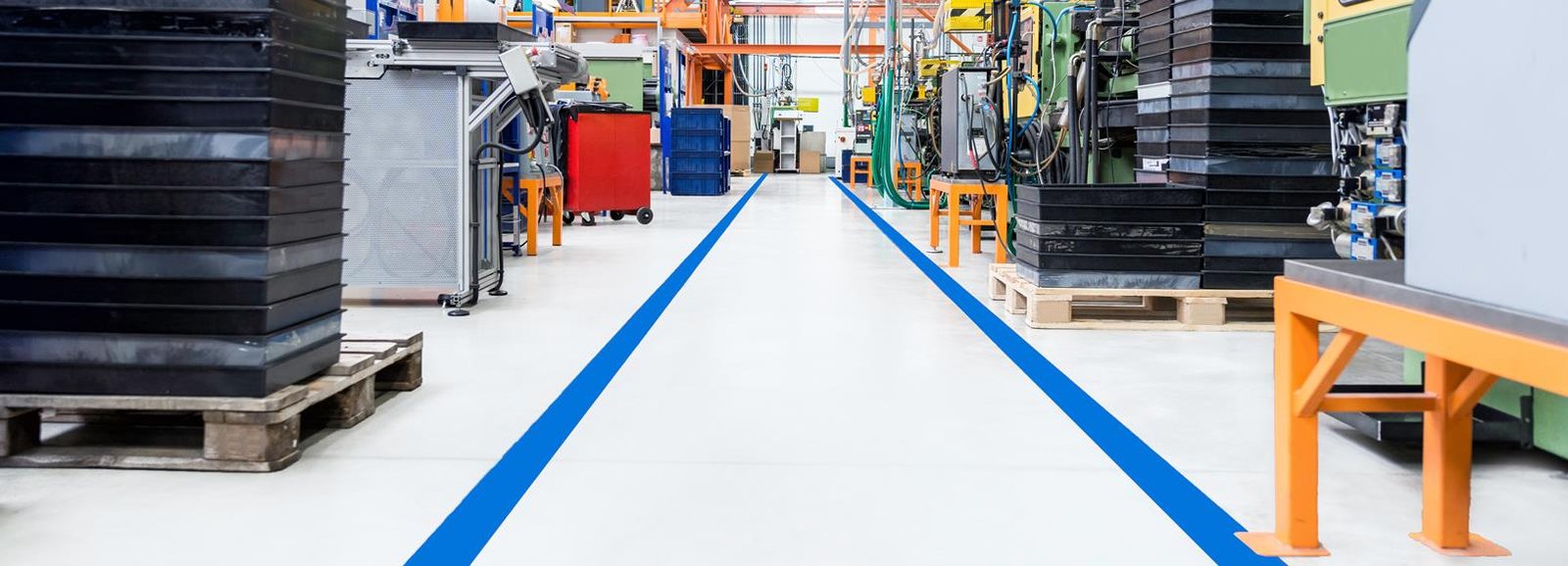
Benefits of Industrial Flooring & Screeds
Industrial flooring and screeds offer several benefits, making them the ideal choice for a wide range of industrial applications:
- Enhanced Durability: The robust materials used in industrial flooring systems make them resistant to abrasion, impacts, and wear over time, even under the most challenging conditions.
- Customizable Solutions: Industrial flooring systems can be tailored to meet specific needs, such as anti-slip surfaces, resistance to high temperatures, or protection from chemical exposure.
- Cost-Effective: With proper maintenance, industrial floors can last for many years, offering a long-term, cost-effective solution compared to other flooring options.
- Improved Safety: The installation of slip-resistant and smooth industrial floors reduces the risk of accidents and improves worker safety in industrial environments.
- Minimal Maintenance: Industrial flooring and screeds are designed to be easy to clean and maintain, reducing downtime and operational disruptions.
- Hygienic: Floors that are smooth, impervious to liquids, and resistant to bacteria and mold growth are essential in industries that require stringent hygiene standards, such as food processing or pharmaceuticals.
Applications of Industrial Flooring & Screeds
Industrial flooring and screeds are used in a variety of environments, including:
- Manufacturing Facilities: Floors that can withstand heavy machinery, chemicals, and impacts are essential in factories, warehouses, and production areas.
- Food Processing Plants: Hygienic, slip-resistant, and easy-to-clean floors are necessary for food production and processing environments to ensure product safety and cleanliness.
- Pharmaceutical Plants: High-performance flooring systems that offer chemical resistance and easy cleaning are required in pharmaceutical manufacturing and laboratories.
- Retail and Commercial Spaces: In high-traffic areas, such as supermarkets and shopping malls, industrial floors provide durability and aesthetic appeal, with easy maintenance.
- Parking Garages: High-strength floors are required to handle vehicle traffic and resist oils, chemicals, and extreme temperatures.
- Cold Storage and Freezers: Flooring systems that can withstand freezing temperatures and exposure to refrigeration equipment are critical in cold storage facilities.
How Industrial Flooring & Screeds Are Installed
The installation process of industrial flooring and screeds involves careful planning and attention to detail to ensure a smooth, durable surface. The general steps include:
- Surface Preparation: The existing concrete or substrate is cleaned and prepared to ensure proper adhesion of the screed or flooring system.
- Mixing and Application: The screed or flooring material is mixed according to manufacturer instructions and applied using specialized equipment for a smooth, level finish.
- Curing and Drying: After application, the floor is allowed to cure and dry to ensure maximum strength and durability. The curing process may vary depending on the material used.
- Finishing: Once the floor is set, it may be polished, coated, or sealed to enhance appearance, durability, and functionality.
Conclusion
Industrial flooring and screeds are vital components of a wide range of industrial and commercial facilities. Whether you are looking for a durable, slip-resistant floor for a manufacturing plant or a hygienic, easy-to-maintain surface for a food processing facility, industrial flooring systems offer long-lasting solutions that meet the specific needs of your business. With the right floor system, you can enhance safety, efficiency, and performance in your industrial space.

